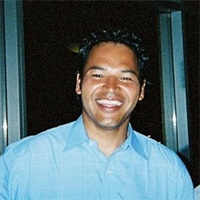Warsaw White Collar Crime Lawyer, Minnesota
Sponsored Law Firm
-
 x
x

Click For More Info:
-
The Law Offices of Richard L. Cooper, P.A.
848 Brickell Avenue Suite 800 Miami, FL 33131» view mapDWI/DUI, Drug Trafficking, Felony Nationally Ranked Top 40 Under 40
With Richard L. Cooper you can expect a trusted confidant who will work diligently to fully understand your case and determine a road map to help you regain control of your life.
800-756-2781
Not enough matches for Warsaw White Collar Crime lawyer.
Below are all Warsaw Criminal lawyers.
Jonathan Kim Reppe
✓ VERIFIEDCriminal, DUI-DWI, Divorce & Family Law, Real Estate, Business
Relax As We Lift Your Legal Worries Off Your Shoulders.
Mr. Reppe developed a passion for helping individuals with their legal problems while working as a public defender early in his career. He moved on to... (more)
Lance R Heisler
✓ VERIFIEDBankruptcy & Debt, Misdemeanor
Lance R Heisler is a practicing lawyer in the state of Minnesota handling bankruptcy matters.
John Andrew Hamer
Accident & Injury, Criminal, Bankruptcy & Debt
Status: In Good Standing Licensed: 16 Years
Daryl Dean Bail
Accident & Injury, Bankruptcy, Criminal, Divorce & Family Law
Status: In Good Standing Licensed: 36 Years
Robin W Finke
Wills & Probate, Family Law, Elder Law, DUI-DWI
Status: In Good Standing Licensed: 33 Years
Jennifer Marie Novak
Employment, Divorce & Family Law, Criminal, Business
Status: In Good Standing Licensed: 9 Years

 Richard L. Cooper Miami, FL
Richard L. Cooper Miami, FL AboutMiami Attorney at Law
AboutMiami Attorney at Law ServicesCriminal Defense
ServicesCriminal Defense


